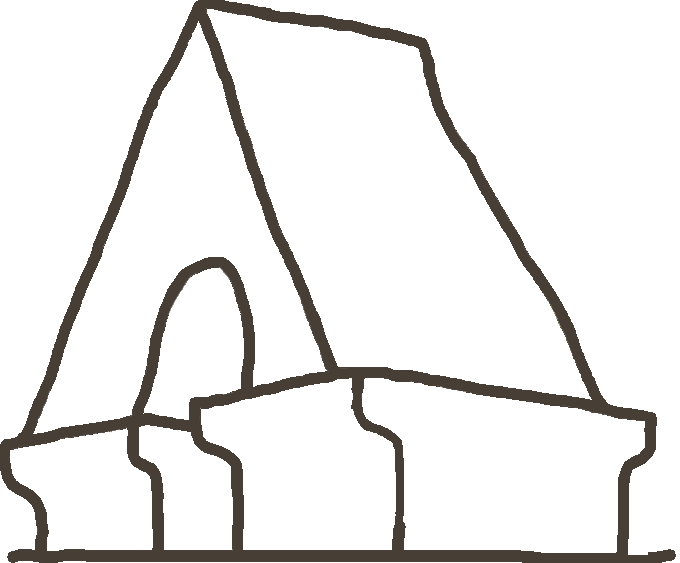The idea and the first realization
In the very hot summer of 2017, a fire destroyed several olive trees in our estate.
It was a particularly hot summer, so much hot that when we called the firemen, they answered: «We’ll come as soon as possible, all of Apulia is burning».
Fortunately, they arrived quite soon and managed to put out the fire, but unfortunately some trees were irretrievably lost.
The feeling of discouragement, in the following months, slowly gave way to the desire for rebirth, to the wish – slowly become an actual aim – to turn that destruction into an opportunity that would give new life to those lifeless and darkened trunks.
“Transform”: this word continued buzzing in our brains, until it led us to the classic concept of transformation, the “metamorphosis”, ideally connected to that fusion of men, gods and nature that had always seemed so present in the landscape around us.
So, we meant to give life back to those blackened woods, leaving them become metamorphoses storytellers, mainly inspired by their most famous singer, Ovid.
We shared our idea with Mr. Paolo Ricchiuti – an acquaintance of ours and a wood sculptor artist. We spent with him long afternoons, observing the burnt olive trees until each of them slowly took shape in our minds.
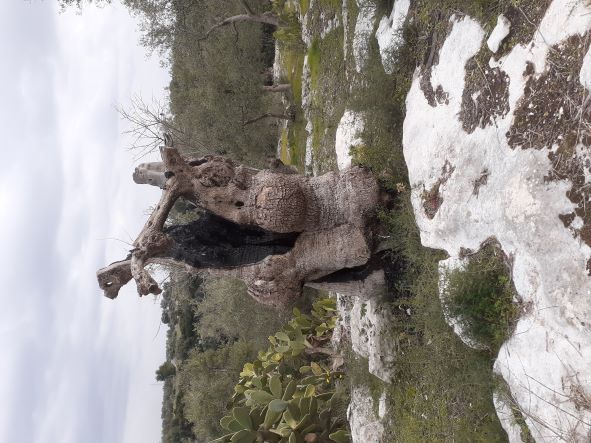
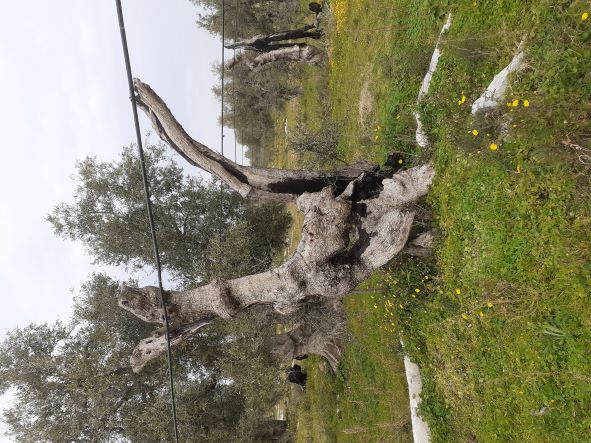
In those days, our idea to “represent” myths clashed with technical difficulties but gradually myth and wood merged into a definite idea and Paolo, enthusiastic, could start working.
There’s a place in our estate where echo can be heard; a beautiful trunk, burnt and forked, was standing there. Paolo Ricchiuti looked at it carefully and told us: “Two faces can be created, here!” We exclaimed in a while: “Echo and Narcissus!”.
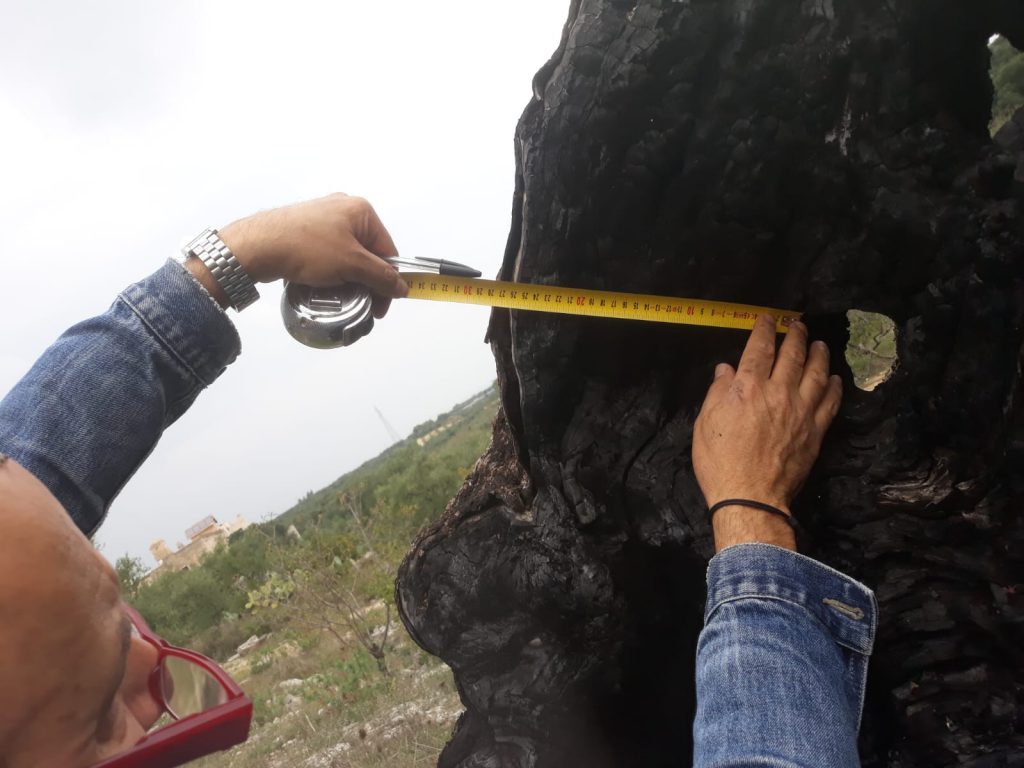
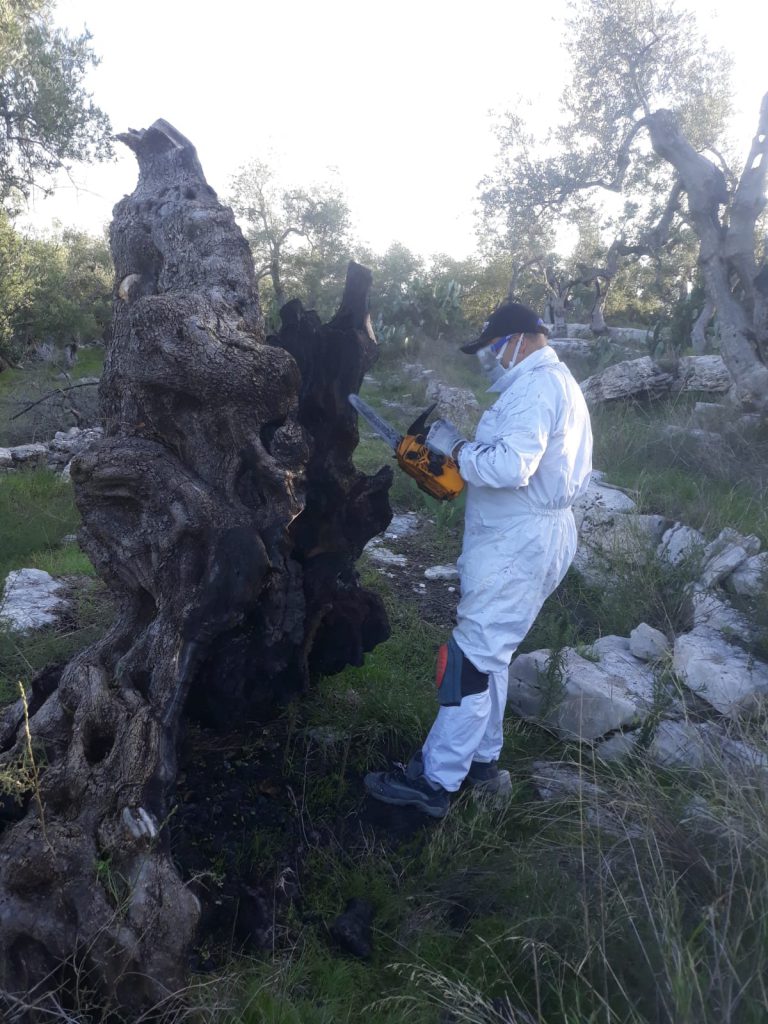
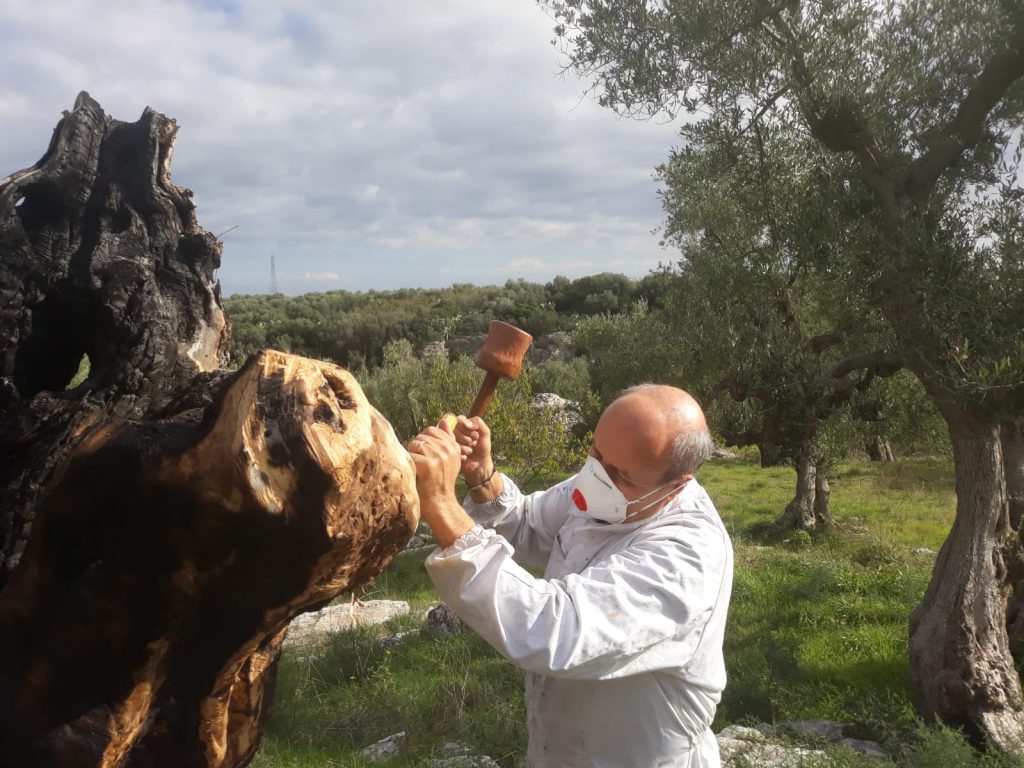
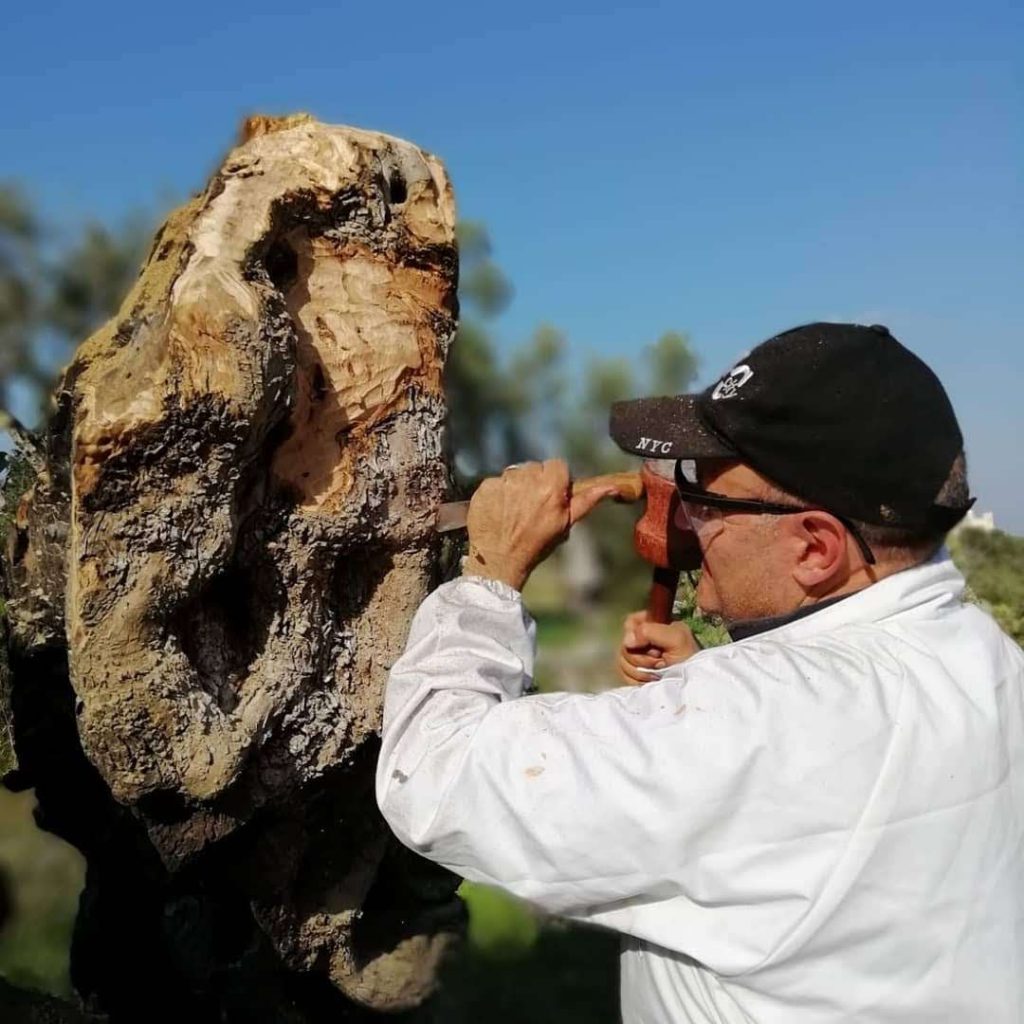
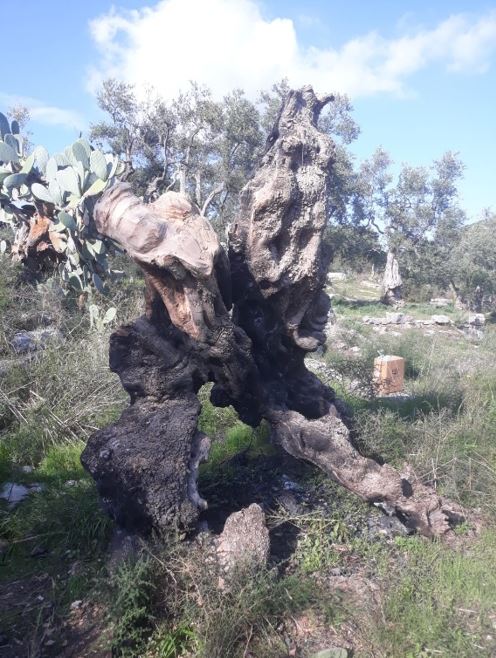
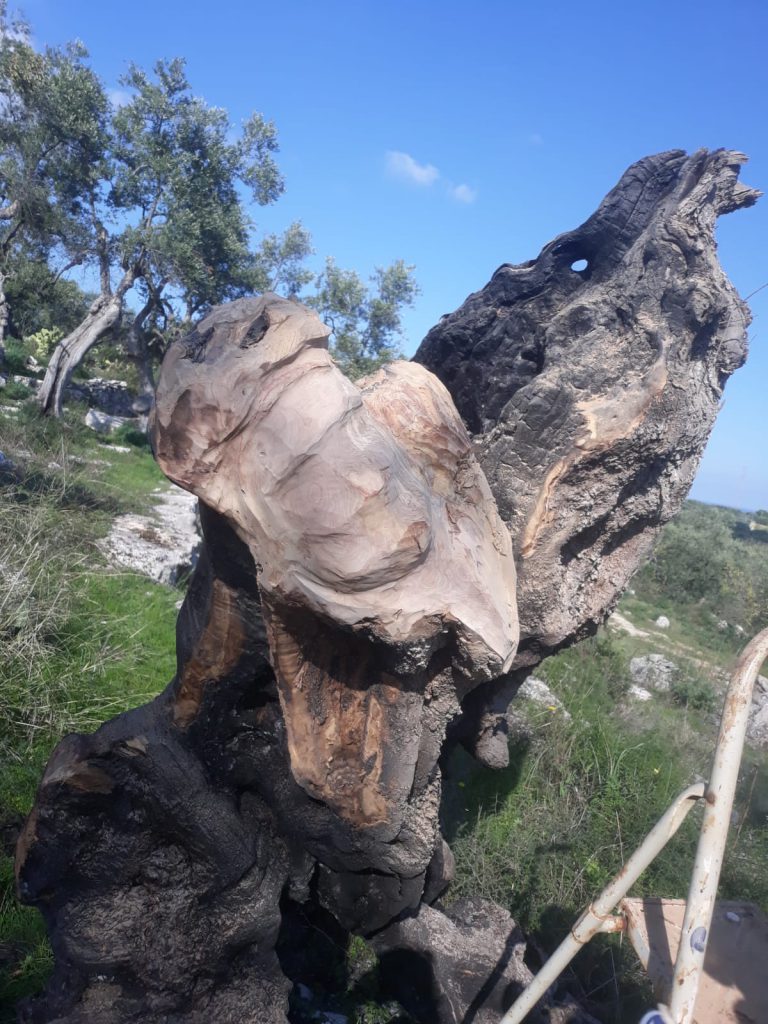
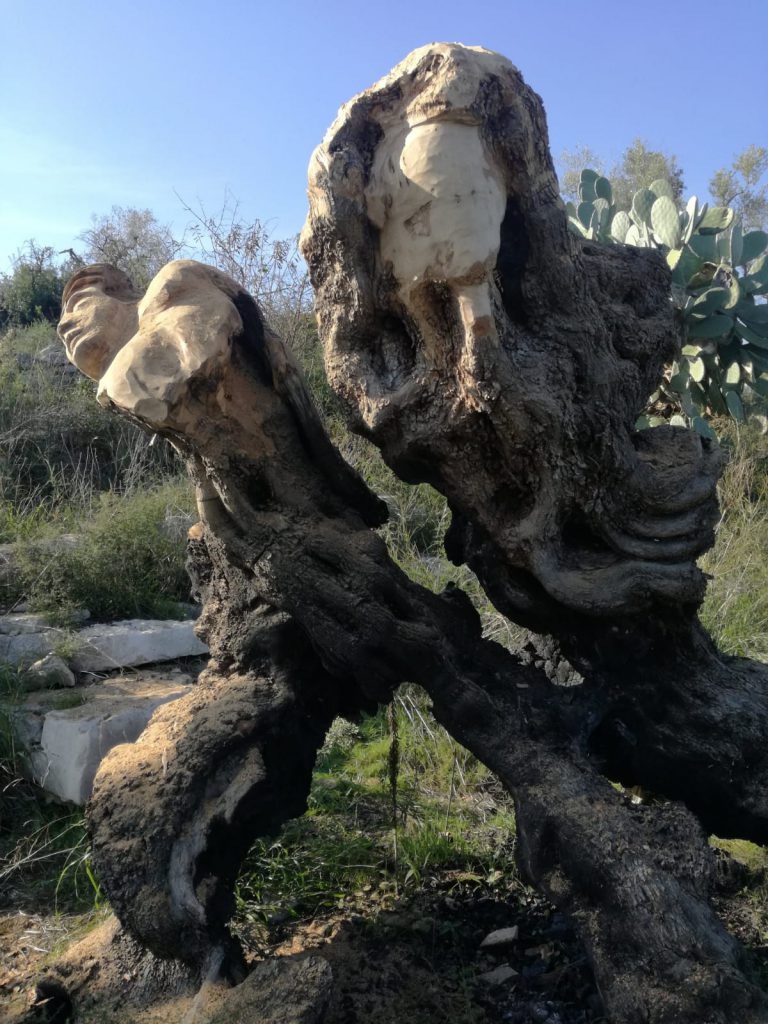
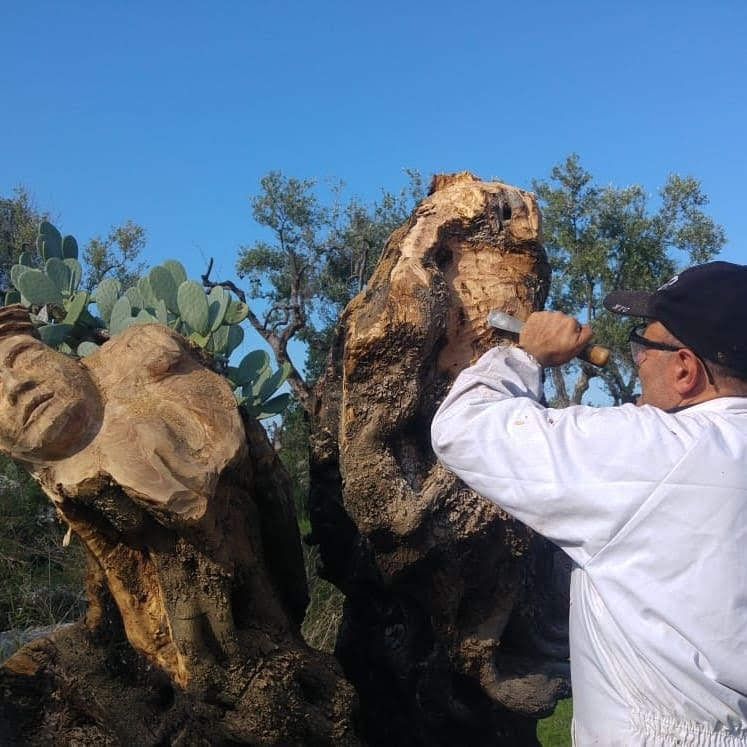
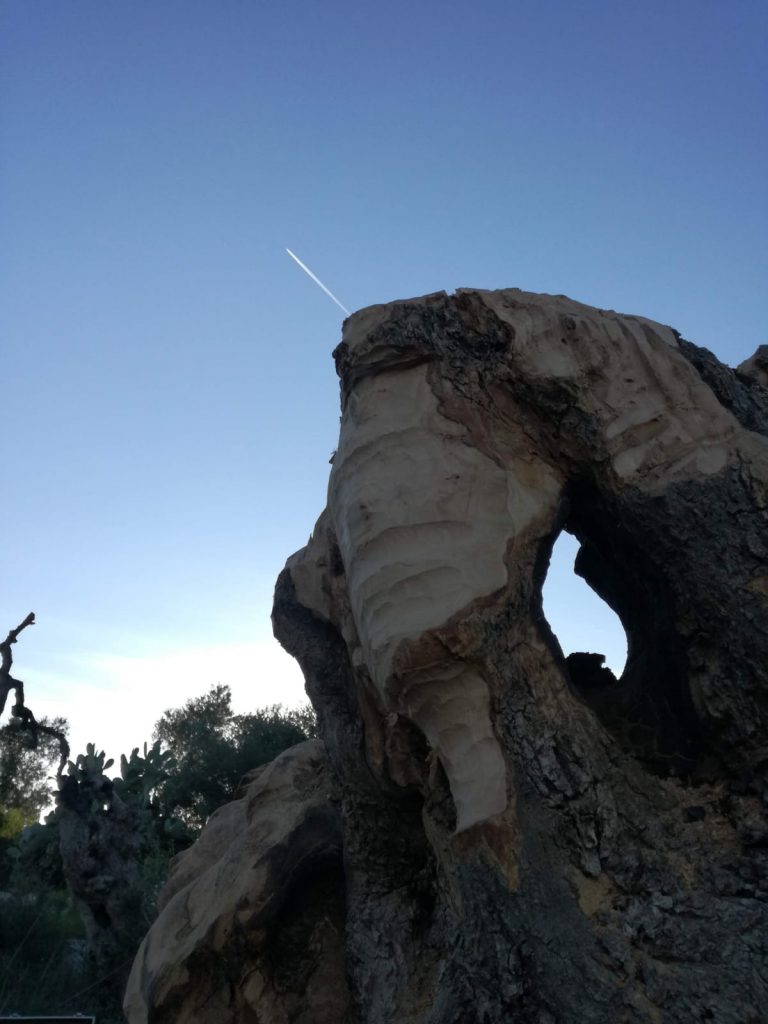
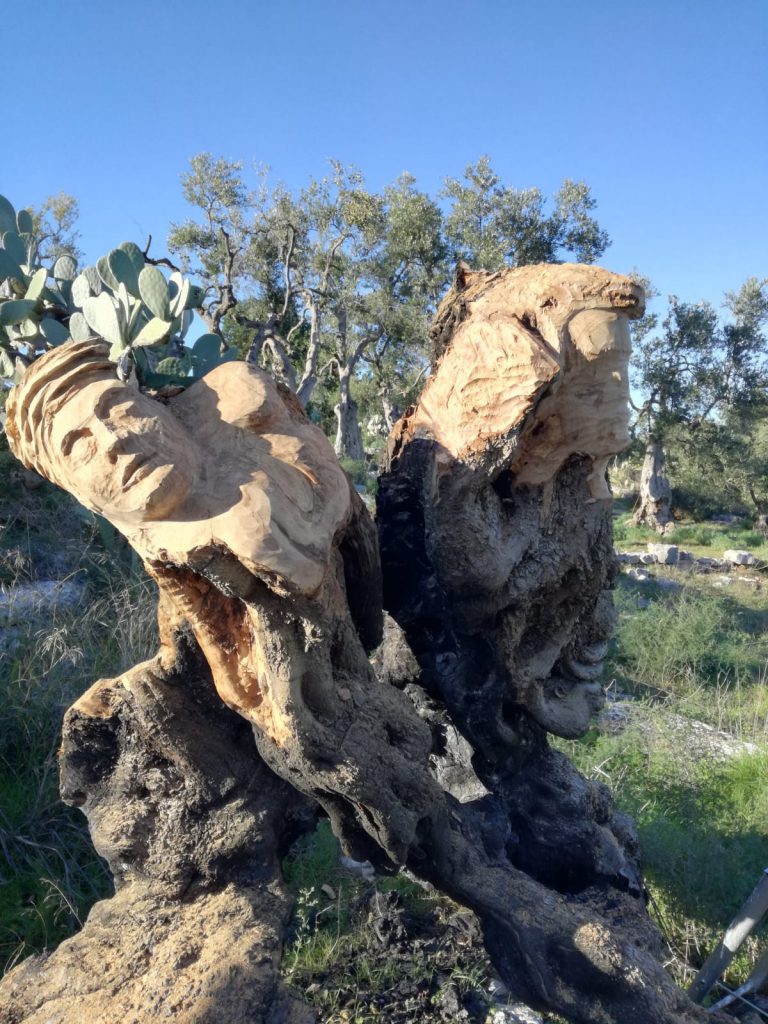
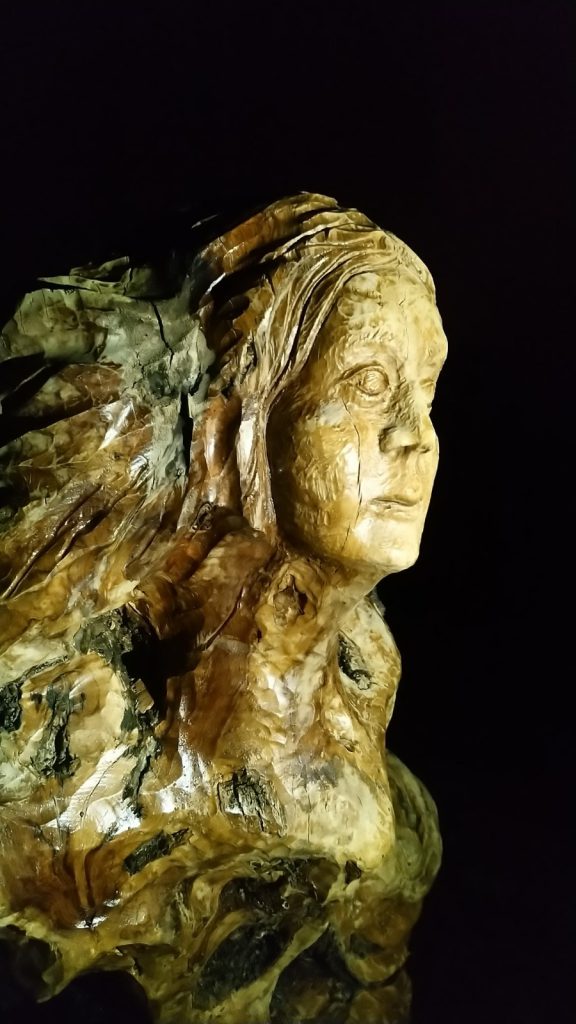
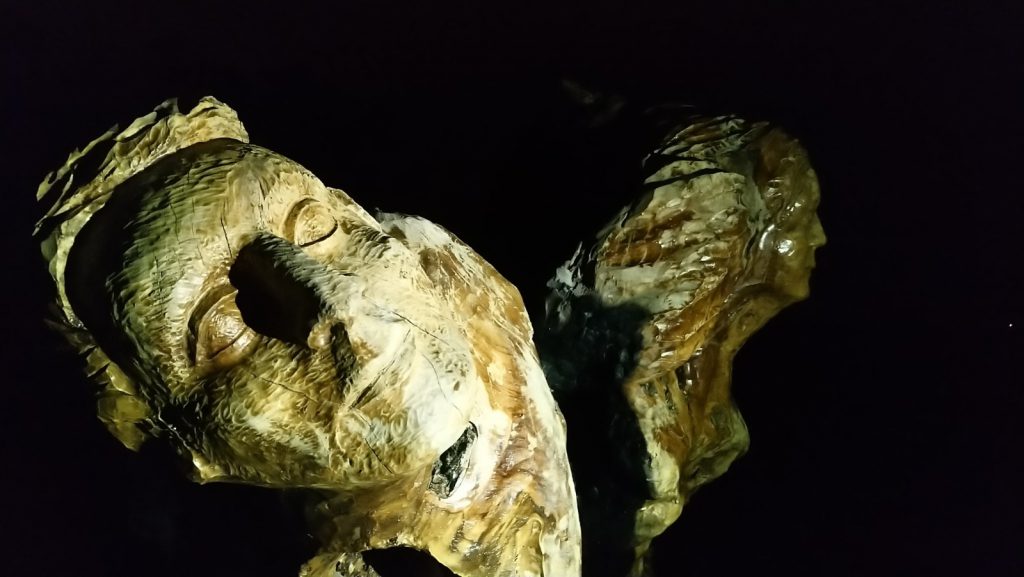
Here he is Narcissus, indignant, rejects Echo.
Narcissus and Echo, our story:
Ovid, Metamorphoses, III, 339-401
NARCISSUS AND ECHO
The beautiful nymph Liriope had a lovely child, whose birth aroused love around him; his name was Narcissus.
At the time the nymph Echo still had a body but couldn’t speak freely. Juno, in fact, had inflicted a punishment on her: she could only repeat the last words pronounced by others. Juno’s decision was due to the discovery that Echo used to entertain her with long speeches to prevent her from surprising the nymphs lying in Jupiter’s arms on the mountains.
Grown up, Narcissus was noticed by the nymph Echo who fell in love.
So many times, she would have liked to speak to him sweetly, addressing him with tender words, but her nature didn’t allow her even to try; anyway, she was allowed to catch the sounds and send back his own words.
One day Echo saw Narcissus wandering in lonely countryside and secretly followed his footsteps.
Noticed that he was being followed, Narcissus yelled: “Is anyone there?” and Echo: “Anyone there?” replied.
Amazed, he was looking everywhere, shouting: “Come!” and she repeated: “Come!”.
He looked around, but no one appeared.
“Why” he asked, “do you escape me?” and how many words he said, so many he got back.
Deceived by the reverberation of his voice, he exclaimed: “Let’s meet!”, and Echo, who would never have answered more willingly to any invitation: “Let’s meet!” repeated. So, determined to do what she had said, she came out of the wood towards him to throw her arms around his neck, as she dreamt.
He fled and fleeing – “Remove these hands, do not embrace me!” he shouted. “May I rather die than give me to you!” She could only answer: “Give me to you!”.
Rejected, Echo hid in shame, covering her face with leaves; she’s been living ever since then in remote caves.
The incessant torment caused her to waste away and her body dissolved into air.
Only voice and bones were left: the voice still exists; the bones, they say, turned to stones.
Try calling her, Echo, in this place full of stones: if she likes doing it, she will answer.
